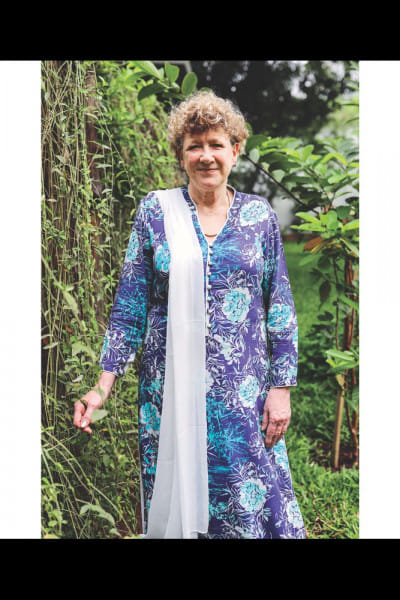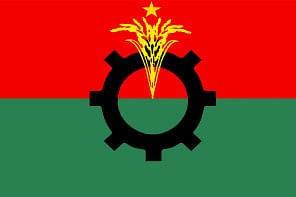‘I want to make sure that the British Council continues to be relevant’

Barbara Wickham, OBE, has been the country director for the British Council, in Bangladesh, since January 2015. She started her professional career in 1978 teaching English as a foreign language in Cairo. She further worked overseas teaching, training and working in Spain, the United Kingdom (UK) and in China. She has been involved with the British Council since 1989. Working in countries including Nepal, Pakistan, South Korea, Ethiopia and Venezuela, Wickham had an exhilarating experience. Having served in Bangladesh for four years, Wickham is now set to move to India. We caught up with her to talk about her time in Bangladesh and more.
How has your personal experience been working in Bangladesh for the last four years?
I have had the opportunity to meet some incredible people, including my colleagues, of course. I also love the food here.
I have been lucky to visit all ends of Bangladesh, from Cox's Bazar to all the way to the North. Unfortunately, it also means that it is time to move on. However, I am pleased that I am not going too far. I will have plenty of opportunities to visit Bangladesh, since I am going to lead our operation in India, which is one of the two largest British Council branches in the world.
Tell us about the British Council and its vision.
The British Council is the UK's international organisation for cultural relations and educational opportunities. We have been in Dhaka since 1951. We work in four thematic areas – Women and Girls, Education, Youth and Digital through our work in Arts, English and Examinations and Education and Society.
With the world changing so rapidly, I want to make sure that the British Council continues to be relevant. We are emphasising on technology to connect with the youth across the country.
How has the British Council created opportunities and platforms for the youth population here?
Through our projects Active Citizens and PRODIGY, we are developing and training young citizens, who are actively working in different social awareness projects to implement the SDGs in their communities. Our many initiatives in developing non chemical pest measures for local farmers, supporting local union parishad and building awareness around the Citizen's Charter and Right to Information, have helped the youth to play an active role in their local communities. We have also built awareness about Thalassemia, an initiative that the Egyptian government has picked up.
With Project EDGE (English and Digital for Girls' Education), we have been teaching English and basic computing skills to 9,000 rural adolescent girls across eight divisions in Bangladesh. We are also training young people to become more technologically equipped with projects such as micro:bit and FameLab. Our training on coding is particularly focused on girls who often do not see IT as a career choice, despite it being incredibly flexible.
We have recently launched an improved Digital Library for our library members across the country. With a Digital Library membership, anyone can access a range of English articles, films, fashion materials, graphic novels and literary works. There are software training courses, e-books, and audio books. We also have the latest newspapers and magazines from across the globe.
Through working with government, government agencies, many local and UK partner organisations, the British Council aspires to help Bangladesh achieve its Vision 2021and fulfill the Digital Bangladesh plan.
Tell us about your programmes in the arts. Is there anything interesting coming up?
We recently produced a film based on Romeo and Juliet which just finished touring across Bangladesh. We call it A Different Romeo and Juliet. It is a collaboration between Graeae Theatre UK and Dhaka Theatre, with a cast of deaf and differently abled actors. In 2018, we partnered with the South Bank Centre, UK, to bring the Women of the World (WOW) festival series that took place in Rangpur, Sylhet, Khulna, Rajshahi and Chattogram. WOW showcased the stories of inspiring women and girls from different walks of life, to an audience of 22,000 through workshops, music concerts, pop up performances, and storytelling sessions at each of the festivals. This year, we are hosting WOW Dhaka on April 5-6 at Bangla Academy.

 For all latest news, follow The Daily Star's Google News channel.
For all latest news, follow The Daily Star's Google News channel. 



Comments